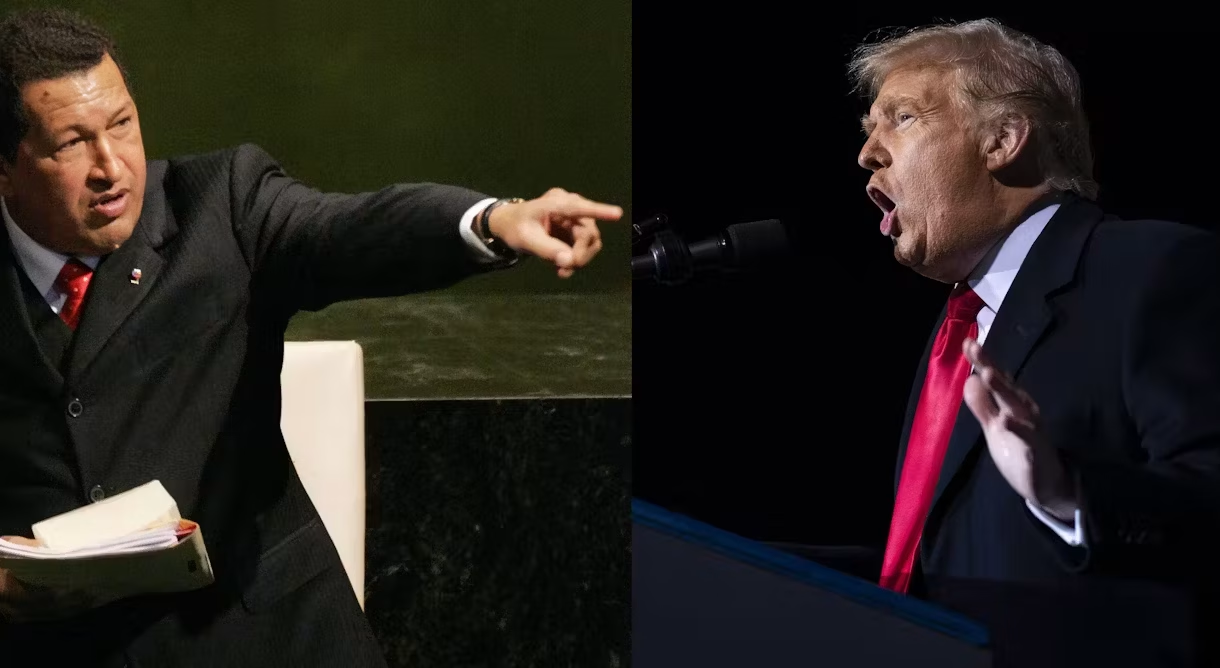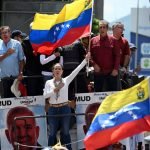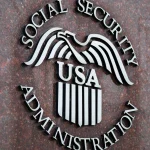
Echoes of Power: Parallels Between Trump and Chávez
Posted in :
Echoes of Power: Parallels Between Trump and Chávez
This blog post delves into the striking parallels between the presidencies of Donald Trump and Hugo Chávez, exploring themes of populism, authoritarianism, and the erosion of democratic principles. Through a mix of personal reflections, historical anecdotes, and contemporary observations, the post aims to raise awareness about the dangers of complacency in the face of rising autocratic behaviors.
As I reflect on the turbulent political landscapes in both the United States and Venezuela, I can’t shake the feeling that we are witnessing a strange intertwining of fate between Donald Trump and Hugo Chávez. My own experiences navigating the chaos of regional politics during Chávez’s prime have left me with a keen eye for the telltale signs of authoritarian evolution. This led me to ponder: How similar are these two leaders, really?
Unveiling Authoritarian Parallels
When we look at the political landscapes of the United States and Venezuela, a striking resemblance emerges. The narratives surrounding Donald Trump and Hugo Chávez often overlap in alarming ways. Both leaders have harnessed populist sentiments, manipulating public opinion while eroding democratic principles. But how do they achieve this? Let’s explore.
Historical Narratives of Trump and Chávez Overlapping
It’s fascinating to see how history can repeat itself. Both Trump and Chávez have risen to power by tapping into the frustrations of the masses. They’ve painted themselves as champions of the common people, while simultaneously undermining the very institutions that protect democracy. This is not just a coincidence; it’s a strategy.
- Both leaders have capitalized on anti-establishment sentiments.
- They’ve fostered a climate of division, pitting their supporters against perceived elites.
- Each has a knack for using language to manipulate narratives.
As Myrna-Paula Corvalan states,
“Populist leaders often thrive on misinformation to cultivate power.”
This rings true for both Trump and Chávez. They’ve created a world where facts are malleable and truth is subjective.
Exploration of Their Methods of Erasing Inconvenient Truths
One of the most alarming tactics used by both leaders is their ability to erase inconvenient truths. They’ve shown a blatant disregard for facts that challenge their narratives. For instance, Trump’s frequent attacks on the media echo Chávez’s disdain for journalistic scrutiny. Both leaders have sought to delegitimize any dissenting voices.
But why do they do this? The answer lies in control. By controlling the narrative, they can maintain their grip on power. They create a reality where their supporters only hear what they want to hear. This manipulation is not just a tactic; it’s a fundamental part of their leadership style.
Symbolism in Political Naming Strategies
Another intriguing aspect of their leadership is the symbolism behind their political naming strategies. Take, for example, Trump’s fixation on renaming the Gulf of Mexico. This mirrors Chávez’s decision to rename Venezuela as the “Bolivarian Republic.” Both acts serve a purpose: they reinforce their ideological dominance.
These symbolic gestures are more than just words. They represent a deeper desire to reshape national identity. By changing names, they attempt to rewrite history and control the narrative. It’s a form of ideological violence that seeks to erase the past and create a new reality.
Insight into Public Manipulation Techniques
Corvalan’s insights into public manipulation techniques are particularly enlightening. She points out that both leaders exhibit anti-intellectual sentiments. This is not just a coincidence; it’s a calculated strategy. By promoting a culture of anti-intellectualism, they can easily dismiss criticism and maintain their power.
In a world where knowledge is power, undermining intellectual discourse becomes a powerful tool. It allows them to appeal to emotions rather than reason. This is why we see a rise in populist rhetoric that resonates with the masses, even if it lacks factual basis.
As we navigate through these complex political landscapes, it’s crucial to remain vigilant. The parallels between Trump and Chávez serve as a warning. If we ignore these signs, we risk falling into a cycle of authoritarianism that could reshape our democratic values.
In the end, understanding these dynamics is essential. We must recognize the tactics used by leaders who seek to manipulate and control. Only then can we strive to preserve the democratic principles that are vital for a healthy society.
Exploitation of Anti-Elite Sentiments
In recent years, we’ve witnessed a surge in populist leaders who thrive on anti-elite sentiments. Two prominent figures in this arena are Donald Trump and Hugo Chávez. Their strategies may differ in style, but the underlying tactics are strikingly similar. Let’s explore how both leaders have manipulated public sentiment and fostered resentment against the establishment.
A Comparison of Tactics
Trump’s recent decision to ban certain ‘woke words’ from government documents is reminiscent of Chávez’s actions in Venezuela. Chávez famously renamed the country to the “Bolivarian Republic,” a move that was more than just a name change. It was a symbolic act aimed at reshaping national identity and consolidating power. Similarly, Trump’s banning of words like “gay” is not just about language; it’s about controlling the narrative.
- Symbolism: Both leaders use symbolism to reinforce their control. For Chávez, it was about ideological domination. For Trump, it’s about appealing to a base that feels alienated by modern discourse.
- Emotional Appeals: Both leaders effectively use emotional appeals to galvanize support. They tap into feelings of resentment and frustration among their followers.
Fostering Resentment
Both Trump and Chávez have cultivated a deep-seated resentment toward elites. This resentment is a powerful tool. It allows them to position themselves as champions of the common people. But how do they do this?
They create a narrative that paints elites as out of touch. They suggest that the elite are responsible for the struggles of the working class. This narrative resonates, especially in times of economic uncertainty. As Myrna-Paula Corvalan notes,
“The anti-establishment narrative has proven effective for populists across the globe.”
This is evident in both leaders’ rhetoric.
Impact on Working-Class Narratives
What does this mean for the working class? The effects are profound. By fostering an anti-establishment mindset, both leaders have reshaped political engagements among their supporters.
- Mobilization: They mobilize their base by appealing to feelings of disenfranchisement. This creates a sense of belonging among supporters who feel ignored by traditional politics.
- Division: The narrative of “us vs. them” fosters division. It creates an environment where dissent is viewed as betrayal. This can lead to a toxic political climate.
Moreover, the emotional appeals used by both leaders serve to galvanize support. They tap into the frustrations of their followers, making them feel heard and validated. This is a crucial aspect of their strategy.
The Role of Populism
Populism plays a significant role in consolidating power. It allows leaders to bypass traditional political structures and connect directly with the electorate. This is particularly effective in today’s digital age, where social media amplifies their messages.
Both Trump and Chávez have shown a disdain for institutional checks and balances. They often dismiss criticism from the media and undermine democratic institutions. This erosion of democratic principles is alarming. It’s a reminder of how easily power can be abused when leaders exploit anti-elite sentiments.
As we reflect on these tactics, it’s essential to recognize the broader implications. The manipulation of language and the fostering of resentment can lead to significant political shifts. We must remain vigilant, understanding the signs of rising authoritarianism.
In conclusion, the exploitation of anti-elite sentiments by leaders like Trump and Chávez serves as a cautionary tale. It highlights the power of narrative in shaping political landscapes. As we navigate these complexities, we must be aware of the potential consequences of complacency in the face of such tactics.
Warning Signs of Democratic Erosion
Democracy is a fragile construct. It requires constant vigilance. Yet, many of us fall into a trap of complacency. We think, “It can’t happen here.” But history tells a different story. We must recognize complacency as a dangerous error. It’s not just a personal failing; it’s a societal one. When we ignore the signs of democratic erosion, we risk losing everything.
Lessons from Venezuela’s History
Let’s take a moment to reflect on Venezuela’s past. Under Hugo Chávez, the country experienced a dramatic shift. Chávez’s regime started with promises of social justice and equality. But it quickly devolved into authoritarianism. The erosion of democratic norms happened gradually. Many Venezuelans were caught off guard. They thought they were safe. They believed that democracy was secure. But as Myrna-Paula Corvalan warns, “Those who overlook tyranny’s quiet rise will ultimately pay the price.”
In the U.S., we see similar patterns emerging. The rise of populism and anti-intellectualism echoes Chávez’s Venezuela. Leaders manipulate public opinion, challenging established norms. They create a narrative that divides us. It’s essential to recognize these tactics. They are not just historical footnotes; they are warnings for our current political climate.
Complacency vs. Vigilance
What’s the difference between complacency and vigilance? Complacency is a false sense of security. It’s thinking that democracy will always be there, no matter what. Vigilance, on the other hand, is active engagement. It’s questioning authority and holding leaders accountable. We must ask ourselves: Are we paying attention? Are we willing to challenge the status quo?
- Recognizing complacency as a dangerous error: Ignoring the signs of democratic erosion can lead to dire consequences.
- Reflection on Venezuela’s history: Understanding the past can inform our present and future political actions.
- Consequences of former regimes: History shows us that individuals often overlook the warning signs until it’s too late.
Chávez’s Venezuela serves as a cautionary tale. The gradual dismantling of democratic institutions was subtle. It didn’t happen overnight. Many citizens believed they were safe, but they were wrong. The same can happen here. We must remain alert to the signs of authoritarianism. We cannot afford to be passive observers.
Understanding the Consequences
What are the consequences of ignoring these warning signs? History is filled with examples. Regimes that have silenced dissent and manipulated media have often faced little resistance. People become apathetic. They think, “It doesn’t affect me.” But it does. It affects us all. When one group suffers, we all suffer. The erosion of democracy impacts every aspect of society.
As we navigate today’s political landscape, we must keep these lessons in mind. The actions of leaders can have long-lasting effects. We must scrutinize their behaviors. Are they fostering division? Are they attacking the media? These are red flags. We should not overlook them.
In conclusion, we are at a critical juncture. The U.S. is facing challenges that could lead to democratic decay. We must remain vigilant. We cannot afford to be complacent. The stakes are too high. We must learn from the past to protect our future.
Media and Institutional Threats
In today’s world, we see alarming trends that threaten the very foundations of democracy. Two leaders who exemplify this are Donald Trump and Hugo Chávez. Both have shown a blatant disregard for journalistic freedoms. They undermine the media’s role as a watchdog, which is crucial for a healthy democracy. But what does this mean for us?
Undermining Journalistic Freedoms
Both Trump and Chávez have displayed contempt for the media. They often attack journalists who dare to question them. For instance, Trump has been known to berate reporters during press conferences. Chávez, on the other hand, took more drastic measures by shutting down dissenting media outlets. This behavior raises an important question: how can we trust our leaders if they refuse to engage with the press?
When leaders dismiss journalistic scrutiny, they create an environment where misinformation can thrive. They manipulate public opinion to serve their interests. This is dangerous. It leads to a society where facts are distorted, and the truth becomes subjective. As Myrna-Paula Corvalan aptly states,
“Media is the watchful guardian; when it falls, democracy falters.”
This quote encapsulates the essence of our current predicament.
Consequences of Weak Institutional Checks
The consequences of weak institutional checks in the U.S. are becoming increasingly evident. When leaders like Trump dismantle these checks, they pave the way for authoritarian practices. We must ask ourselves: what happens when the institutions designed to hold power accountable are weakened?
- We see a rise in populist rhetoric that exploits public fear.
- Anti-intellectualism becomes normalized, leading to a society that values opinion over fact.
- Public trust in democratic institutions erodes, creating a divide between the government and the people.
Corvalan highlights how both leaders capitalize on resentment towards elites. This tactic not only rallies their supporters but also fosters a climate of division. We must remain vigilant. If we ignore these warning signs, we risk sliding into a reality where democracy is merely a facade.
Erosion of Public Trust
The erosion of public trust in media and democracy is perhaps the most concerning outcome of these trends. When leaders attack the media, they undermine the very institutions that protect our rights. This creates a cycle of distrust. People begin to question the motives of journalists and, by extension, the democratic process itself.
As we reflect on these issues, it’s crucial to remember that democracy thrives on informed citizens. If we allow leaders to manipulate the narrative, we risk losing our ability to engage in meaningful discourse. We must ask ourselves: how can we rebuild trust in our institutions?
Corvalan’s analysis serves as a wake-up call. The fragile nature of democracy’s institutional underpinnings is evident. We must not take our freedoms for granted. The lessons from Chávez’s regime in Venezuela are clear. If we do not actively participate in safeguarding our democracy, we may find ourselves facing similar challenges.
In conclusion, the threats posed by leaders like Trump and Chávez are not just abstract concepts. They have real implications for our lives. We must remain vigilant against the erosion of journalistic freedoms and the weakening of institutional checks. The health of our democracy depends on it. As we navigate these turbulent times, let’s remember that the media is our ally. It is our responsibility to support it, to demand accountability, and to ensure that democracy remains strong. After all, as Corvalan reminds us, when the media falls, democracy falters. Let’s not allow that to happen.
TL;DR: This post examines the unsettling similarities between Trump and Chávez, highlighting how both leaders have manipulated public opinion and undermined democratic values. A call to remain vigilant in preserving democracy amid rising authoritarianism is paramount
DemocraticDecay, PublicOpinionControl, U.S.Democracy, Authoritarianism, TrumpComparison, Populism, ChávezRegime, MediaManipulation, PoliticalNarrative
#TrumpComparison, #DemocraticDecay, #PublicOpinionControl, #MediaManipulation, #U.S.Democracy, #PoliticalNarrative, #Authoritarianism, #Populism, #ChávezRegime,#Trump, #Chávez, #Authoritarianism, #Populism, #MediaFreedom, #Democracy, #Misinformation, #PoliticalManipulation, #AntiIntellectualism, #VenezuelanPolitics, #AmericanPolitics

